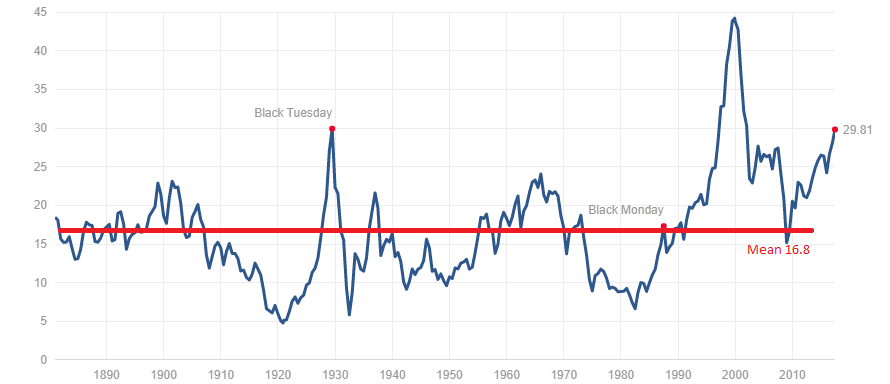The State Of US-Canada Tourism: Boycotts And Border Crossings

Table of Contents
The Impact of Political and Social Boycotts on US-Canada Tourism
Political and social climates significantly influence travel decisions. Fluctuations in US-Canada relations directly affect the number of cross-border tourists.
Political Tensions and Travel Decisions
Political disagreements, such as trade disputes or differing foreign policies, can create uncertainty and deter travel. While quantifiable data on direct boycotts is often difficult to isolate, a decline in tourism is frequently observed during periods of heightened tension. For example, periods of significant trade friction have historically shown a correlation with reduced tourism numbers.
- Trade disputes: Periods of escalating trade disputes often lead to negative media coverage that can discourage travel.
- Foreign policy differences: Diverging views on international issues can influence public perception and impact travel decisions.
- Political rhetoric: Strong anti-immigrant or protectionist rhetoric from either country can also influence tourism patterns.
Social and Environmental Boycotts
Social media and activism play a powerful role in shaping travel choices. Increasingly, travelers are considering ethical and environmental factors when planning trips. Boycotts driven by concerns over environmental issues, such as deforestation or climate change inaction, or social justice issues can lead to a decrease in tourism to specific regions or businesses.
- Sustainable tourism: The growing popularity of sustainable and responsible travel influences tourists to choose destinations and businesses with strong environmental commitments.
- Ethical travel: Consumers are increasingly aware of the social and environmental impact of their travel choices and actively seek ethical options.
- Social media campaigns: Online campaigns highlighting environmental or social issues related to tourism destinations can significantly impact travel decisions.
Navigating US-Canada Border Crossings: Challenges and Changes
Navigating the US-Canada border involves several factors that can impact travel time and experience.
Increased Border Security and Processing Times
Increased border security measures, implemented for enhanced safety and national security, often lead to longer wait times at border crossings. While technological advancements, such as mobile passport control apps, aim to expedite the process, unexpected delays can still occur.
- Wait times: Increased scrutiny and potential staffing shortages can contribute to significant delays.
- Technological advancements: While helpful, technological solutions are not always universally accessible or reliable.
- Pre-clearance programs: Programs such as NEXUS can streamline the border crossing process for eligible travelers.
Visa Requirements and Travel Documentation
Understanding visa requirements and ensuring proper documentation is crucial for a smooth border crossing. Failure to meet these requirements can result in delays or denial of entry. Staying up-to-date on current policies is vital for all travelers.
- Visa requirements for US citizens: While generally visa-free for tourism purposes, US citizens should always ensure their passports are valid.
- Visa requirements for Canadian citizens: Similar to US citizens, Canadian citizens should check passport validity and any specific requirements for entry into the US.
- Travel documents: Carrying all necessary travel documents, including proof of citizenship, return tickets, and sufficient funds, is crucial.
The Economic Impact of Fluctuations in US-Canada Tourism
The tourism sector significantly impacts the economies of both the US and Canada. Fluctuations in cross-border tourism directly affect revenue generation, job creation, and overall economic growth.
Revenue Generation and Job Creation
US-Canada tourism generates significant revenue for both countries, supporting numerous businesses, from hotels and restaurants to tour operators and transportation services. The industry also creates a substantial number of jobs.
- Tourism revenue: The economic contribution of cross-border tourism is significant and measurable, with data available from government sources.
- Local businesses: Tourism is a vital economic driver for communities near border crossings and popular tourist destinations.
- Job creation: The tourism sector employs millions of people in both countries, including directly in tourism-related businesses and indirectly through supporting industries.
Government Initiatives and Support for the Tourism Sector
Both governments implement strategies to support the tourism sector and mitigate negative impacts from external factors. These initiatives aim to boost cross-border travel and ensure the sector's continued economic contribution.
- Government support programs: Financial aid packages, promotional campaigns, and infrastructure improvements aimed at attracting tourists.
- Tourism marketing campaigns: Initiatives designed to promote travel between the two countries.
- Infrastructure development: Investments in border infrastructure and transportation networks to improve the overall travel experience.
Conclusion
The state of US-Canada tourism is a dynamic landscape shaped by interwoven political, social, and economic factors. Boycotts and border crossing challenges directly impact both the tourist experience and the economic well-being of both nations. Understanding these complexities is vital for travelers and policymakers alike. To stay informed on the latest developments and plan your next trip responsibly, continue to follow updates on travel advisories and border regulations. Make informed choices that support the ongoing health of US-Canada tourism. Plan your next cross-border adventure, but be sure to research the current climate of US-Canada tourism thoroughly to ensure a seamless and rewarding experience.

Featured Posts
-
 Investor Guide Understanding And Addressing High Stock Market Valuations Bof A
May 29, 2025
Investor Guide Understanding And Addressing High Stock Market Valuations Bof A
May 29, 2025 -
 Marini Hospitalized After Testing Crash
May 29, 2025
Marini Hospitalized After Testing Crash
May 29, 2025 -
 Real Madrids Vinicius Jr And Mbappe A Look At Their Complex Relationship According To Anton Mena
May 29, 2025
Real Madrids Vinicius Jr And Mbappe A Look At Their Complex Relationship According To Anton Mena
May 29, 2025 -
 Free Agent Transfer Manchester Uniteds Pursuit Of Dominant Player
May 29, 2025
Free Agent Transfer Manchester Uniteds Pursuit Of Dominant Player
May 29, 2025 -
 Find The Nike Air Max Dn8 Snakeskin Hv 8476 300 Release Date Here
May 29, 2025
Find The Nike Air Max Dn8 Snakeskin Hv 8476 300 Release Date Here
May 29, 2025
